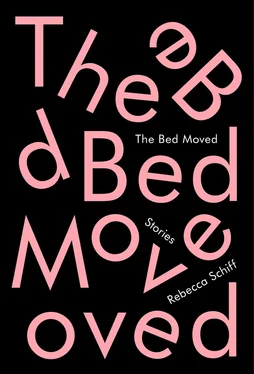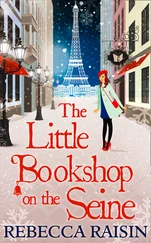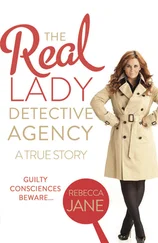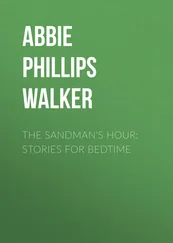“You could be an operator-rater,” I said to the operator. “You could rate voices. Voices are underrated.”
“Silence, too,” she said. “I’m going to need you to hold for just a moment while I fetch a supervisor.”
“No, wait, Linda, don’t bother. I’m terminating my membership, effective immediately.”
I had no idea if her name was Linda, but saying “effective immediately” made me feel strong. I had quit dating sites with the same terminology. I had stopped wilderness catalogs from coming to my home.
“Rate Me is sorry to see you go,” she said. “We thought parts of you had potential.”
SHE WENT ON DATES with guys who’d been there. They seemed to be doing a lot of dating, the ones who’d escaped, and claimed to be humbled, but they were usually as humble as guys who hadn’t been there. The only ones humbled were the ones who hadn’t escaped, maybe, but they were out of the dating pool. She felt sorry for her dates, regardless. It seemed sad that to sit in a bar with her was what you did when you got your life back.
You also moved to Brooklyn. You got your life back in Brooklyn. Guys who had designed web pages in or near there left to design web pages in Brooklyn. One of them showed her his pages. He had designed for a bakery, a congressional aide, an aunt. They looked at his pages for two hours, then had intercourse.
“I had a really nice time,” he said.
She and another guy got a ticket for trespassing by the river to watch the sun set over what was no longer there.
“I would have never done this before,” said the guy, as they climbed through a hole in a fence about to be gentrified out of having holes.
She was grateful to the cop for interrupting the sunset, any requirements it might have had. The guy told the cop there should be a sign. The cop sighed. He handed them each a summons and pointed to the fence.
“In New York State,” he said, “your fence is your sign.”
Had the cop been there? If he’d been there, he probably wouldn’t be here, explaining their summonses.
“You take the morning off from work and go to this address,” said the cop. “Just tell the judge you were watching the sunset with your friend. Maybe he’s having a good day. I respect that it’s a beautiful night, but after what happened, we can’t take any chances. If you don’t go to this address by December first, you could be arrested at a later date. You could have been arrested right now.”
“Thank you,” they said.
The cop got back in his cop car, rolled away, alive.
“Prick,” said the guy.
—
SHE WASN’T some trauma groupie. She attended no vigils, contributed to no quilts. She wasn’t looking for it, but if a friend said, “I have a friend. He was there. He just moved to Brooklyn,” she would give her friend permission to let the guy put her number into his device. Then bar, sunset, web pages, intercourse.
One guy, Steve, took her to breakfast the next day. They walked blocks and blocks, holding hands in a determined way. He told her he had gotten back with his girlfriend after it happened. He was still back with his girlfriend.
Steve’s breakfast place had teddy bears for sadness. One of the teddy bears was wearing a fireman slicker, holding a hose. It was a hero. It was rescuing Eggs Benedict. She ordered the Florentine. There was sort of an altar for these bears. People left flowers for the bears, candy for the bears, bears for the bears.
She didn’t want to be remembered. People said you lived on in memory, but she knew that being remembered definitely meant you were dead. Steve finished his toast. He told her that he’d had a really nice time.
—
WHY WERE THEY all having such a nice time? Weren’t they supposed to not call her again? They were all calling again. The ticket guy wanted to go to court with her. Web Pages wanted to take her to his aunt’s bakery. The bakery was having a sale on flag marzipan. They would make your loved one’s missing poster into a cake.
No, she canceled. She was sick, she was busy, she was really sick and busy. It was one thing to go on a blind date, quite another to go when you had actually seen the person. She’d pay the fine herself, get her cupcakes somewhere unaffiliated.
But everywhere was affiliated. If not bears, it was collages. If not collages, it was handprint murals from kindergarten classes in states that would be boring to attack. Her office rented a therapist, even though everybody already had their own therapist. The subway told her it was okay to get help, even if you weren’t there when it happened, even if you were in Machu Picchu when it happened. She couldn’t pass a corner without a shrine, a fence that wasn’t tricked out with Xeroxes of the dead. Bears got wet in the rain. The dead looked deader Xeroxed.
She asked her dates if they knew anybody on the fences. They never did.
“Different company,” they’d sputter. “Different floor.”
“But maybe you saw them in the elevator, in the lobby, by the snack machine?”
“Our company had its own snack machine.”
—
HER COMPANY didn’t have a snack machine. Her company locked its bathroom “for security reasons” and left the keys in the receptionist’s mug. The mug had a picture of the receptionist’s grandson on it, graduating from something. She went to the bathroom a lot at work. The keys were sometimes a little warm, a little wet. Once she forgot the keys in the bathroom, and the receptionist had to call security to unlock what had locked behind her. Nobody would bomb the bathroom, she felt certain. It was too big a hassle.
Other offices made you wear a laminated ID tag, and some guys would forget to take off their laminated ID tags when they arrived to meet her at street corners, or on museum steps. The museum was a creative date, and a poor idea. She liked to be on a barstool, perched and ready to judge. She’d look from a guy’s face to the face hanging from his neck, a face that could be on a fence, but wasn’t.
THEY CAME EVERY DAY with their prayer books and coconut candies. Every day they came, careful not to slip on the driveway— it’s icy —offering cold cheeks for a kiss. My aunts took their coats, their cakes. I took their sorries, then hid in my old room. There wasn’t much to look at: mirror shrouded in a bath towel, a poster of the Beatles crossing the street, bits of Fun-Tak where sunflowers and revolutionaries had been, blue bits like mold on the white wall. The bookshelf was half empty, just a French-English dictionary and some young adult paperbacks. I reread the one about the gawky girl who loses her virginity to the paraplegic genius, the one about the southern toughie who’s beaten by her step-dad and rubs herself against a pillow imagining she’s on fire. The southern one was listed as a finalist for a major award, but I had dog-eared the rubbing pages and forgotten the rest of the story. This was not the South. This was New Jersey and there were people downstairs, clustered around fruit baskets.
The people made noises. Doorbell noises. Flushing noises.
“Sloan Kettering,” they whispered, the way they whispered “Harvard.”
“Stage four,” they said, like an SAT score.
I slipped my father’s old LPs onto the turntable: “Let It Be,” “Desire.” I made weeping noises. The guests chomped cheddar cheese. On day three, I took a shovel to the driveway to break up the ice. Someone, my mother said, could fracture a hip and sue. I gripped the shovel with my father’s enormous gloves, then swung it in circles over my head before bringing it down on what could become litigation. Those driving by might have mistaken me for a midget dad gone berserk. He’d had it with mortgage installments and the Temple Brotherhood. Take that, frozen water. Only my father hadn’t joined the Brotherhood. We weren’t big on joining. He refused to sign me up for Brownies, though I wanted more than anything to march through the cafeteria with those brown shirts. I wanted a badge.
Читать дальше












